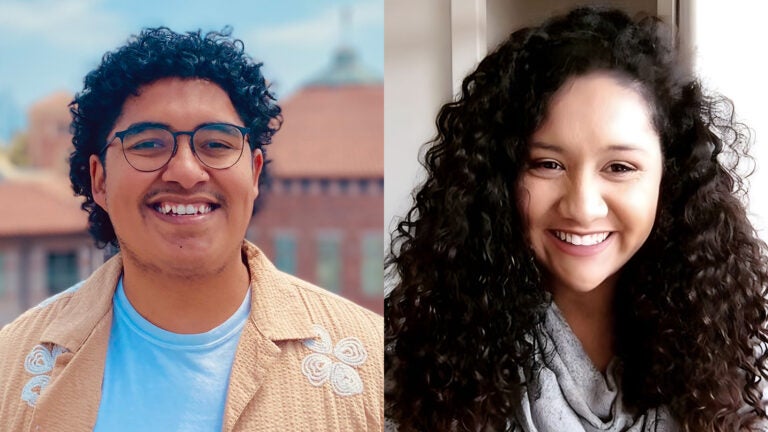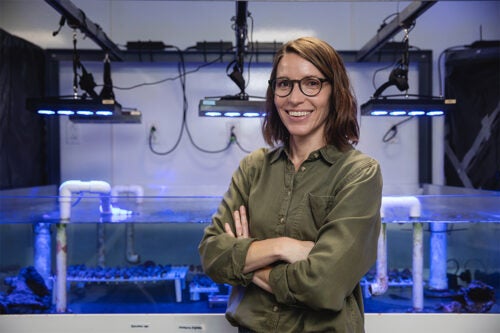
2 prestigious grants fund PhD research in marine and molecular biology
Research on neurogenerative disorders and the capacity for marine life to withstand warmer temperatures has gotten a boost, thanks to a grant and fellowship awarded to PhD students and faculty at the USC Dornsife College of Letters, Arts and Sciences.
Gilliam Fellowship supports marine biology research
Daniel Olivares-Zambrano, a biological sciences PhD student, and Carly Kenkel, Wilford and Daris Zinsmeyer Early Career Chair in Marine Studies and associate professor of biological sciences, have received a Gilliam Fellowship. The fellowship, funded by the Howard Hughes Medical Institute, aims to enhance diversity in the sciences through mentorship programs supporting both PhD students and their advisors.

It’s the first Gilliam Fellowship to be awarded to USC Dornsife, and only the second to USC.
Olivares-Zambrano says his interest in science arose in childhood, when his curious and mischievous mind was most often entertained by the wild creatures around him.
“From my sightings of local opossums and crows to sampling the spicy-bitter taste of the abundant Argentine ants, and fighting with the cockroaches that would ruin my cereal, I loved interacting with the natural world,” he says.
Library books also inspired him. He once spent hours mesmerized by a textbook on human anatomy his sister found discarded in a library trash can.
Olivares-Zambrano completed his undergraduate degree in biology at California State University Monterey Bay, where he turned his scholarly focus to marine life.
At USC Dornsife, he’s conducting research in Kenkel’s lab on the symbiotic relationship between sea anemones and coral to better understand the species’ capacity for withstanding heat stress.
Olivares-Zambrano says he’s grateful both for the financial support of the fellowship and its immediate connection to hundreds of fellow scholars that share similar research interests. “I think [this community] will help me stay motivated, inspired and supported toward my goals,” he says.
After completing his PhD, he hopes to return to where his own academic career began and join the faculty at a California State University to help mentor the next generation of scientists.
NIH diversity supplement grant funds brain disorder research
Nina Barr, a third-year molecular biology PhD student, received a highly selective National Institutes of Health diversity supplement grant to support her research. Barr studies under Derrick Morton, assistant professor of biological sciences and gerontology, who explores the role of RNA-processing proteins in brain disorders.
Barr’s interest in biology arose from her own diagnosis of epilepsy, which sparked her curiosity about the molecular mechanisms of the central nervous system.
Her thesis looks at the role that the RNA exosome, a protein complex that degrades RNA, plays in the development of the brain’s cerebellum. To do so, she’s examining a disease called pontocerebellar hypoplasia, characterized by an atrophied cerebellum, through generating a 3D “organoid” model of the cerebellum from stem cells.
The grant funds both her research and attendance at conferences where she can demonstrate her findings, receive constructive feedback and conduct important career networking.
Barr hopes to land a job as a research scientist in the pharmaceutical industry after graduation, where she’d like to continue her research on drug testing in organoid models to observe treatment in a preclinical setting.